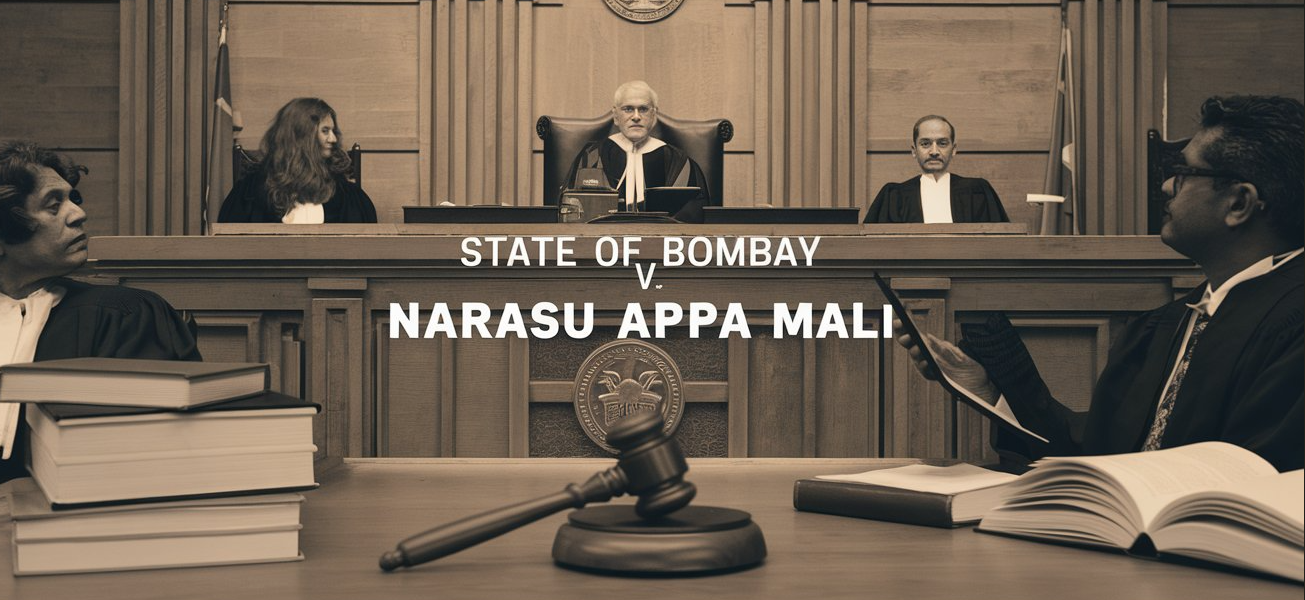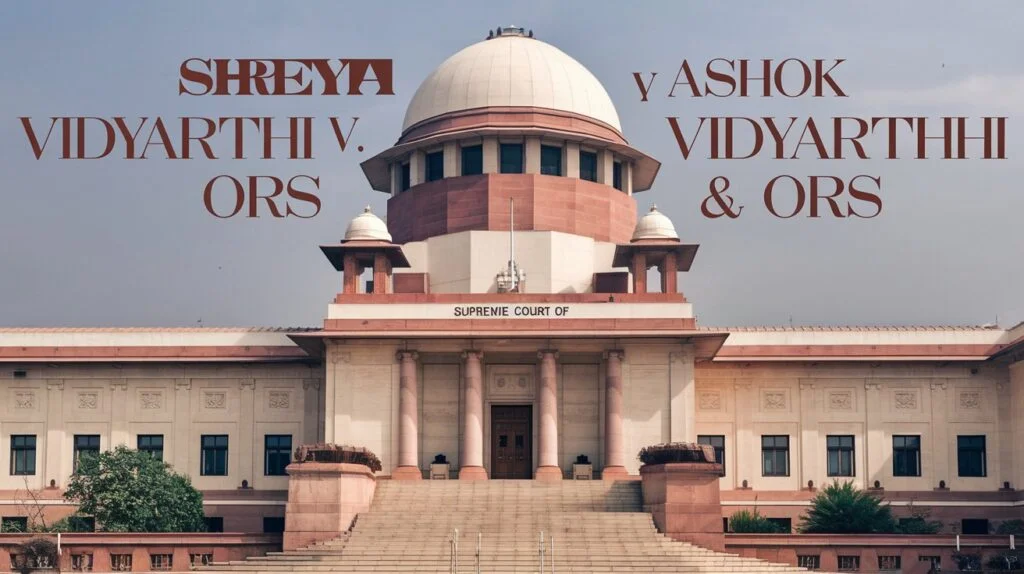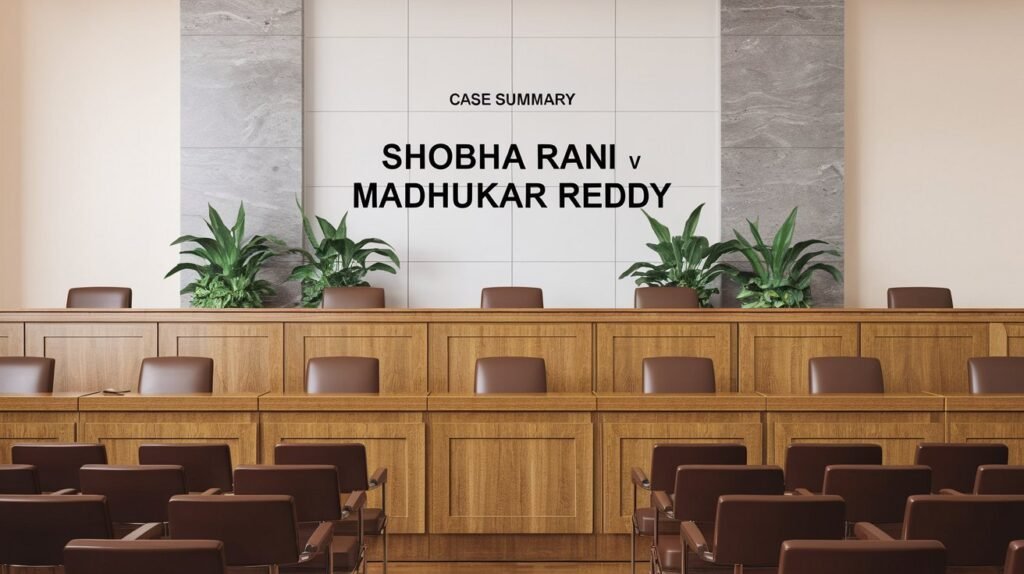State of Bombay v. Narasu Appa Mali AIR 1952 Bom 84 (Case Summary)

This landmark case addressed the conflict between personal laws and constitutional mandates in India. The Bombay High Court addressed on whether personal laws could be challenged under the Indian Constitution, particularly with regard to Articles 13, 14, and 15, which deal with the right to equality and non-discrimination.
Table of Contents
ToggleFacts of State of Bombay v Narasu Appa Mali
- The State of Bombay passed the Bombay Prevention of Hindu Bigamous Marriages Act, 1946, criminalizing bigamy among Hindus.
- Narasu Appa Mali, a Hindu man, was prosecuted under this Act for contracting a second marriage while his first wife was still alive.
- Narasu challenged the Act, arguing that it violated his fundamental rights under the Constitution, particularly the right to equality and non-discrimination.
Issues framed
- Whether personal laws are subject to the provisions of Part III of the Indian Constitution, particularly Articles 13, 14, and 15?
- Whether the Bombay Prevention of Hindu Bigamous Marriages Act, 1946, is unconstitutional for being discriminatory?
Subordinate Court Judgment
The case was initially heard by a subordinate court. The Sessions Judge of South Satara held that the Act was invalid and acquitted the accused. Similarly, in another case, a Magistrate in Kaira also acquitted the accused under the same reasoning.
However, in a case before the Resident Magistrate of Mehsana, the accused was convicted under Section 5 of the Act and sentenced to rigorous imprisonment and a fine. This conviction was upheld by the Sessions Judge, Mehsana. The matter was then appealed to the Bombay High Court. The case has been foundational in subsequent debates on the application of constitutional principles to personal laws.
Judgment of State of Bombay v Narasu Appa Mali
The Bombay High Court analysed whether personal laws could be treated as law under Articles 13, 14, 15 and 25 of the Indian Constitution. The judgment distinguished between statutory laws, which are subject to judicial review, and personal laws derived from religious scriptures or customs, which are outside the purview of Article 13.
The Bombay High Court ruled that personal laws are not “laws” under Article 13 of the Constitution and, therefore, are not subject to the scrutiny of fundamental rights. The court held that the Act in question was a social reform measure and did not violate the equality provisions of the Constitution. The judgement emphasised that personal laws cannot be challenged under Part III of the Constitution unless they have been codified by the legislature.
The Bombay High Court upheld the constitutionality of the Bombay Prevention of Hindu Bigamous Marriages Act, 1946, and dismissed the appeal. In its ruling, the court remarked, “Personal laws are not laws under Article 13 and hence cannot be challenged as being in violation of the fundamental rights.” This judgement has significant implications, as it established that uncodified personal laws remain outside the purview of judicial review concerning fundamental rights. The court upheld the validity of the Bombay Prevention of Hindu Bigamous Marriages Act, stating that it did not violate the fundamental rights of the petitioner. The court concluded that personal laws are not subject to the equality provisions of the Constitution and are thus immune from challenges based on Part III of the Constitution.





